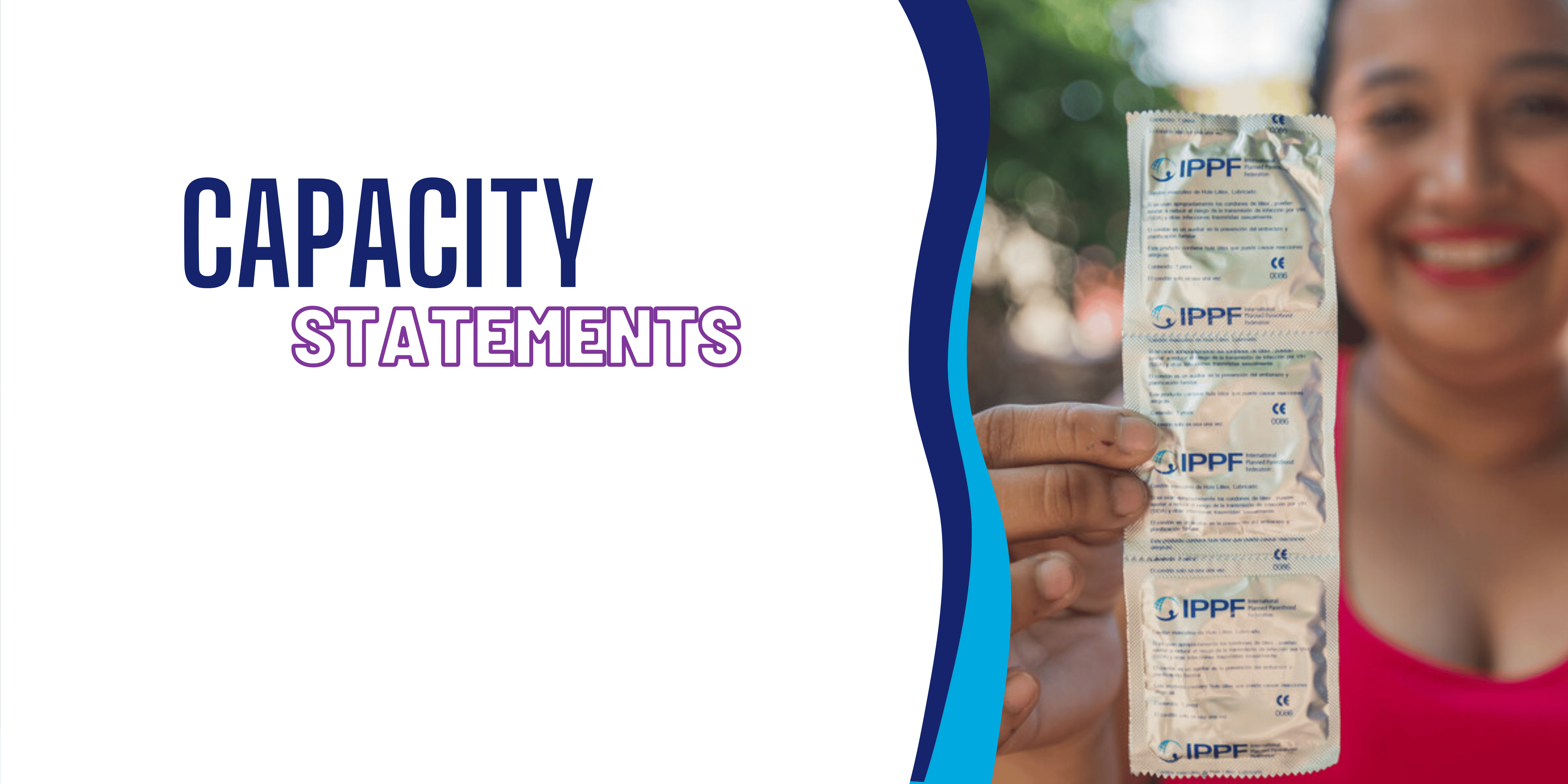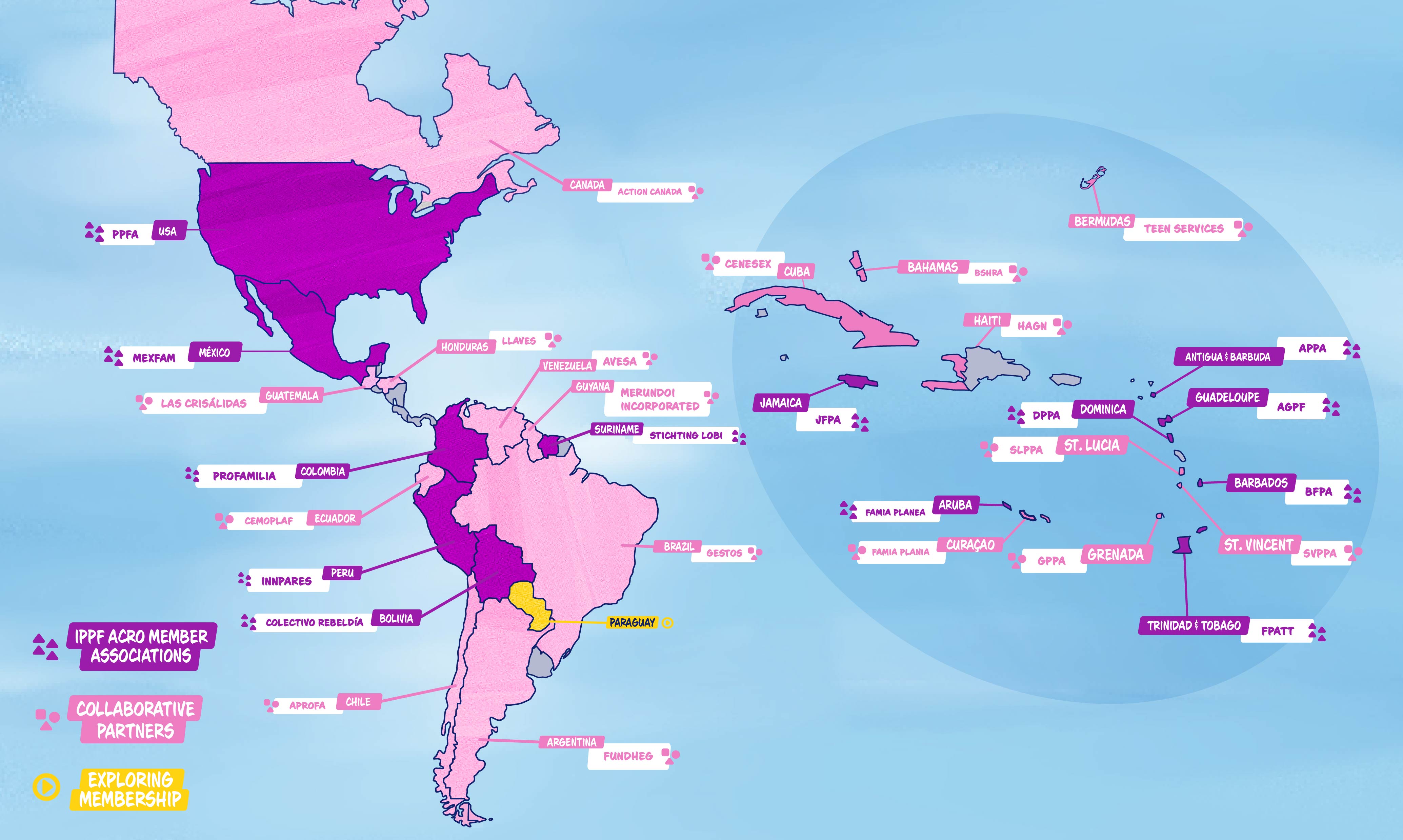La oficina regional y las asociadas miembro de IPPF en las Américas y El Caribe se unen a la celebración de México por el fallo histórico de la Suprema Corte de Justicia de la Nación (SCJN) que avanza en la lucha por las libertades de las mujeres y personas gestantes reconociendo su derecho a decidir interrumpir un embarazo en su etapa temprana, y, por lo tanto, eliminando la pena legal que existe para quien aborte.
La Fundación Mexicana para la Planeación Familiar, MEXFAM, ha hecho un trabajo sistemático con actores clave en México para incidir a favor del reconocimiento de la autonomía corporal, incluyendo el trabajo con la SCJN. Su compromiso está reflejado también en su participación como líder de la Coalición de Acción del Foro Generación Igualdad de Autonomía Corporal.
El fallo histórico contribuye, además, con la lucha de los movimientos feministas y defensores de los Derechos Sexuales y Derechos Reproductivos de nuestro continente que han logrado avances trascendentales: Cuba, Guyana, Barbados, Uruguay, Chile, Argentina, Ecuador y ahora México le muestran al mundo que en materia de Derechos Humanos no hay espacio para el retroceso por lo que reiteramos nuestro trabajo decidido para que en otras latitudes como Centroamérica y otros países de El Caribe, donde se mantienen las restricciones más fuertes para acceder al aborto en el mundo, la garantía de derechos sea pronto una realidad.
El turno ahora es para Colombia. Profamilia, organización líder en la defensa, promoción y garantía de los Derechos Sexuales y Derechos Reproductivos en el país, celebra este avance y espera que la decisión de la SCJN sea un ejemplo para las autoridades judiciales en la región, en especial para la Corte Constitucional de Colombia, la cual está próxima a pronunciarse sobre la demanda de inconstitucionalidad frente al delito de aborto. Profamilia reitera que la despenalización total del aborto es el mejor camino para proteger y garantizar los derechos de las mujeres y personas gestantes, reduciendo los estigmas y efectos de la criminalización sobre la salud pública y los prestadores de salud.
INNPARES, desde Perú, felicita al equipo de MEXFAM por este logro histórico que tendrá repercusión en la lucha que nos une para que todas las mujeres y personas gestantes sean realmente dueñas de sus cuerpos y de sus decisiones. En este sentido, INNPARES, como integrante la Mesa de Vigilancia por los Derechos Sexuales y Reproductivos, está redactando el proyecto de ley marco de Promoción y Protección de los Derechos Sexuales y Reproductivos, que será presentada muy pronto en el Congreso de la República.
La Asociación de Planificación Familiar de Trinidad y Tobago (FPATT) una organización líder en el Caribe, con foco en la salud y los derechos sexuales y reproductivos de todes, celebra con su socio regional de México, el histórico fallo de la SCJN. Este avance en el reconocimiento de un derecho fundamental y la libertad de las mujeres demuestra un enfoque sistémico de la salud con visión de futuro. FPATT continuará abogando por una decisión similar para Trinidad y Tobago y confiará en que el gobierno, socios clave y partes interesadas reconozcan la oportunidad de impactar positivamente la vida de las mujeres como nunca antes se ha hecho.
La Asociación de Planificación Familiar de Barbados (BFPA) también recibe con júbilo la noticia del éxito en México. Desde 1983, el derecho de las mujeres a tener control sobre sus cuerpos ha sido reconocido y apoyados por la constitución de Barbados. Esto ha llevado a una sociedad más equitativa, conduciendo al mayor período de desarrollo social y económico en la historia del país. Debemos mantener y multiplicar estos logros de equidad e igualdad para todes porque la oposición nunca duerme, y nosotros tampoco debemos hacerlo.
La Afiliación Caribeña de Planeación Familiar (CFPA) se une a la celebración de las personas en México por este importante avance. El hecho de que México sea el segundo país con más población católica en el mundo es inspirador porque nos enseña que los derechos humanos, la justicia social y la salud reproductiva de las mujeres están en concordancia con la práctica de la fé. Demasiadas mujeres han sufrido altos costos en su salud y muchas han muerto como consecuencia de abortos practicados en condiciones de riesgo. La descriminalización del aborto reconoce que el derecho de las mujeres para decidir es un tema de gran relevancia, no solo para las mujeres, pero también para los hombres y la sociedad en su conjunto.
Planned Parenthood Federation of America (PPFA) celebra esta victoria para las mujeres y personas gestantes de México, y ve con optimismo el impacto que la decisión de la corte tendrá para pavimentar el camino hacia la legalización en todo el país. Los avances latinoamericanos para garantizar que ninguna persona sea castigada por decidir de manera autónoma sobre su cuerpo continúan inspirando al resto del mundo en la lucha por la libertad reproductiva. Ahora más que nunca, y frente al retroceso que representa la Ley S.B. 8 que entró en vigencia en Texas la semana pasada, pasos como el dado por México trae esperanza para las mujeres y personas con capacidad de gestar de Estados Unidos y cambia el panorama de acceso al aborto en una frontera cruzada por personas que buscaban servicios de salud reproductiva en Texas y otros estados fronterizos cuando no podían acceder a ellos en México.
Nuestro compromiso como Federación se mantiene, seguiremos acompañando a los movimientos para que todas las mujeres y personas gestantes de todos los rincones de las Américas y El Caribe puedan decidir libremente sobre sus cuerpos y sus vidas para que se garanticen los derechos sexuales y reproductivos y la maternidad elegida.
No pararemos hasta lograr la justicia reproductiva en nuestro continente!
ADS - Asociación Demográfica Salvadoreña/Pro-Familia. BFPA- The Barbados Family Planning Association, FPATT - Family Planning Association of Trinidad and Tobago, INPPARES - Instituto Peruano de Paternidad Responsable, JFPA - Jamaica Family Planning Association, MEXFAM - Fundación Mexicana para la Planeación Familiar, A.C., PPFA - Planned Parenthood Federation of America – United States of America, Profamilia - Asociación Pro-Bienestar de la Familia Colombiana, Stichting Lobi Suriname, CFPA - Caribbean Family Planning Affiliation: Anguilla Family Planning Association-The Primary Health Care, Antigua Planned Parenthood Association, Foundation for the Promotion of Responsible Parenthood (FPA), Bahamas Sexual Health and Rights Association, Bermuda Teen Services, Curaçao Foundation for the Promotion of Responsible Parenthood (FPRP), Dominica Planned Parenthood Association, Grenada Planned Parenthood Association, Association Guadeloupéenne pour le Planning Familial, Association Martiniquaise pour I'Information et l'Orientation Familiales, Saint Lucia Planned Parenthood Association, St. Vincent Planned Parenthood Association
Oficina Regional para las Américas y el Caribe de la Federación Internacional de Planificación Federal – IPPF ACRO



















